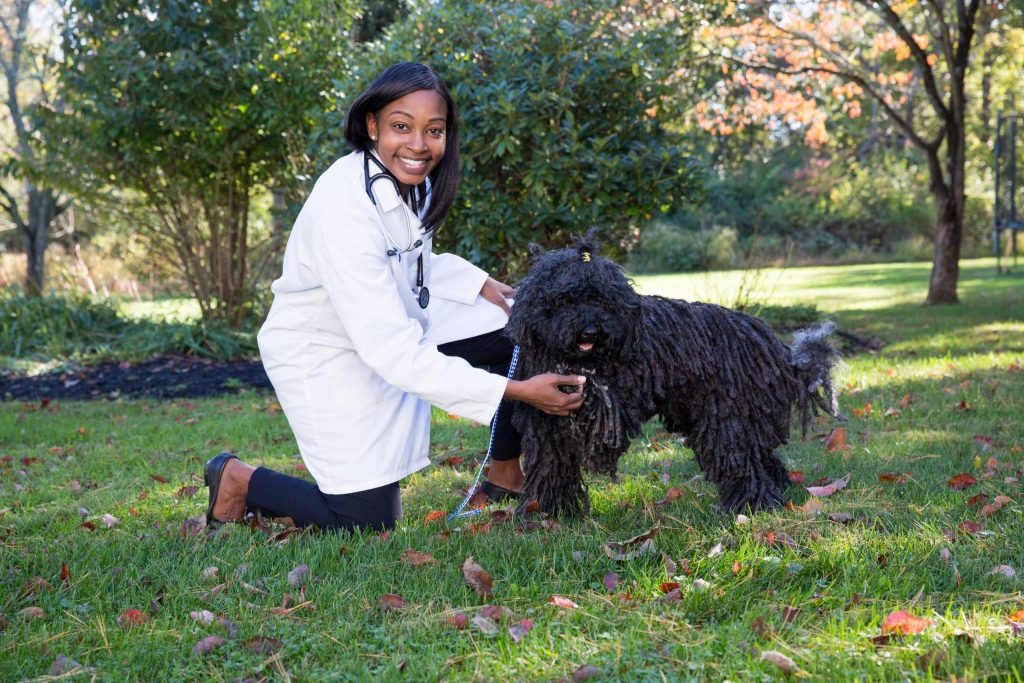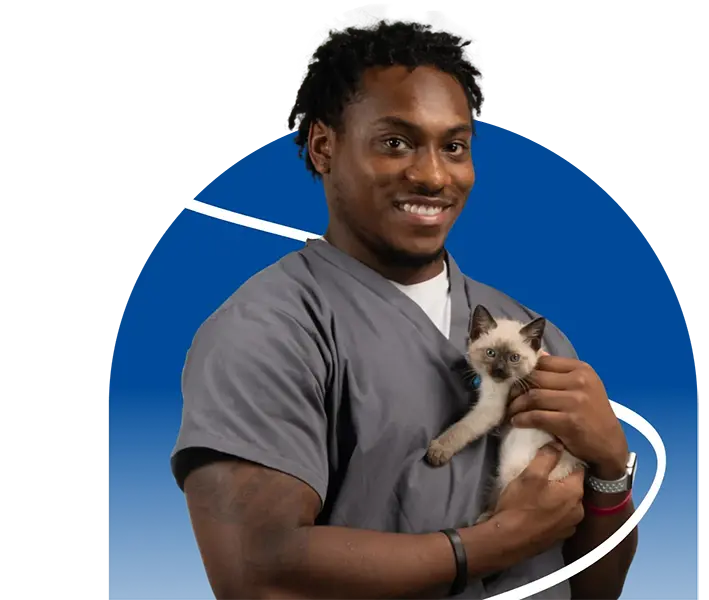Recovery tips after Pet Cancer Surgery
Wiki Article
Recognizing the Function of a Vet Oncologist in Your Pet dog's Cancer Treatment
A vet oncologist concentrates on identifying and dealing with cancer cells in animals. Their knowledge is critical for developing tailored therapy strategies that deal with the special demands of each pet dog. Early diagnosis can significantly affect results, making their function a lot more vital. Comprehending the different therapy alternatives and how these specialists team up with primary vets is crucial. What methods do they utilize to boost your family pet's top quality of life during this tough time?
What Is a Vet Oncologist?
A vet oncologist is a specialized veterinarian who concentrates on detecting and dealing with cancer in pet dogs. These specialists have advanced training in both veterinary medicine and oncology, allowing them to recognize the intricacies of malignant conditions in animals. Their experience allows them to carry out a range of diagnostic procedures, consisting of imaging methods and laboratory examinations, to accurately recognize different sorts of cancers in pet dogs.Along with medical diagnosis, vet oncologists establish tailored treatment plans, which might include surgical procedure, radiation treatment, radiation therapy, or palliative care. They work very closely with pet dog proprietors to clarify therapy options and potential outcomes, guaranteeing that family members make educated decisions about their animals' treatment. Furthermore, vet oncologists frequently team up with other veterinary professionals and general professionals, developing a thorough strategy to family pet health and wellness. By focusing on cancer cells treatment, they play an essential duty in improving the lifestyle for animals identified with hatreds.
The Relevance of Very Early Diagnosis and Therapy
Early diagnosis and therapy of cancer cells in animals greatly enhance the possibilities of effective outcomes and boosted quality of life. Vet oncologists can carry out targeted interventions that may slow condition development and alleviate signs when cancer cells is determined in its very early stages. This proactive strategy permits better administration of the condition, potentially bring about longer survival times and enhanced convenience for the pet.Furthermore, very early discovery frequently means that treatment choices may be much less invasive and much more reliable, lowering the total concern on both the family pet and its proprietor. Regular veterinary exams and awareness of subtle behavioral adjustments are necessary, as they can help with prompt diagnoses. Proprietors need to continue to be cautious and consult their vet at the first sign of worry. Pet Cancer Surgery. Inevitably, an early diagnosis equips pet owners to make educated decisions about their family pet's treatment, substantially affecting the overall trip through cancer monitoring
Treatment Alternatives Offered by Veterinary Oncologists
When confronted with a cancer cells diagnosis, animal proprietors can discover a variety of treatment options given by veterinary oncologists that are customized to the details needs of their animals. These experts usually provide a mix of surgical treatment, chemotherapy, radiation treatment, and immunotherapy. Surgical treatment might aim to remove growths or impacted cells, while radiation treatment uses medications to kill and target cancer cells, frequently administered in cycles.Radiation treatment concentrates on making use of high-energy rays to diminish growths and alleviate pain. Immunotherapy, a much more recent advancement, harnesses the animal's immune system to combat cancer a lot more successfully. Additional helpful treatments, such as pain management, dietary assistance, and palliative treatment, are likewise important elements of a complete treatment plan. By assessing each case independently, vet oncologists guarantee that the picked treatment straightens with the family pet's general health and cancer cells type, taking full advantage of the opportunities of a positive result.
The Collaborative Method: Dealing With Your Main Vet
Collaboration between vet oncologists and primary veterinarians is important for supplying comprehensive care to family pets identified with cancer cells. This partnership assures a comprehensive approach to therapy, combining the specialized understanding of oncologists with the recurring treatment offered by main vets. Together, they evaluate the family pet's health, develop customized treatment plans, and keep an eye on the pet's progress throughout the cancer trip.Main veterinarians commonly offer as the initial factor of contact, identifying potential indications of cancer and referring clients to oncologists for specialized diagnostics and therapy alternatives. Adhering to the oncologist's referrals, the key veterinarian plays a vital function in handling the pet's general health, consisting of discomfort monitoring and supportive treatment.
Effective communication in between these specialists fosters a unified technique, allowing for timely treatments and changes to therapy as required. This joint strategy inevitably improves the quality of treatment and support for pet dogs and their owners throughout a challenging time.


Supporting Your Animal Through Cancer Treatment
Sustaining an animal via cancer cells treatment needs a comprehensive understanding of Veterinary Cancer Specialist the psychological and physical obstacles faced by both the animal and its owner. Caregivers have to listen to the family pet's altering needs, which might include managing discomfort, changing diets, and keeping track of adverse effects from treatments. Offering a comfortable, trouble-free environment is essential for the animal's health.Psychological support is just as important; proprietors should look for to remain favorable and engaged while knowing their own sensations of anxiety and unhappiness. Developing a support network, including veterinarians, family members, and good friends, can relieve some burdens.
Furthermore, family pet proprietors need to educate themselves concerning the specific kind of cancer and therapy choices readily available, promoting educated discussions with vet oncologists. Inevitably, a caring technique, integrated with aggressive treatment and assistance, can boost the family pet's lifestyle during this tough journey.
Regularly Asked Questions
Exactly how Do I Pick the Right Vet Oncologist for My Pet?
Choosing the best veterinary oncologist involves researching qualifications, seeking recommendations, evaluating experience with particular cancers cells, determining interaction styles, and visiting centers to assure a comfortable environment for both the family pet and owner during therapy.What Should I Anticipate During the First Appointment?
Throughout the very first visit, the animal proprietor can anticipate an extensive exam, discussion of medical history, diagnostic examinations, and a treatment strategy summary. The veterinarian will address worries and provide guidance for ongoing treatment.Are There Any Prices Associated With a Vet Oncologist's Services?
Costs connected with a veterinary oncologist's solutions can differ considerably based on area, treatment complexity, and called for diagnostics. Board Certified Veterinary Oncologist. Animal owners need to prepare for costs for appointments, tests, and prospective ongoing therapy plans customized to their animals' demands
Can My Animal Still Get Normal Vet Treatment While Seeing an Oncologist?
Pets can receive regular vet care while seeing an oncologist. Collaborating treatments warranties detailed wellness management. Regular exams enhance specialized cancer cells treatment, allowing for holistic tracking of the animal's general health and dealing with various other health issues.What Resources Are Available for Animal Owners Throughout Their Animal's Cancer Trip?
Various resources are offered for animal proprietors navigating their pet's cancer cells trip, including support system, online forums, academic internet sites, and monetary assistance programs, all focused on supplying advice, psychological support, and sensible info during this tough time.A vet oncologist is a specific vet who focuses on diagnosing and dealing with cancer cells in family pets. They work carefully with family pet owners to explain treatment choices and prospective end results, ensuring that family members make educated choices concerning their animals' care. When encountered with a cancer cells diagnosis, pet dog proprietors can discover a selection of treatment alternatives given by vet oncologists that are tailored to the specific requirements of their animals. Cooperation between key vets and vet oncologists is important for supplying extensive care to animals detected with cancer cells. In addition, pet owners need to inform themselves about the details type of cancer cells and treatment alternatives available, fostering notified discussions with vet oncologists.
Report this wiki page